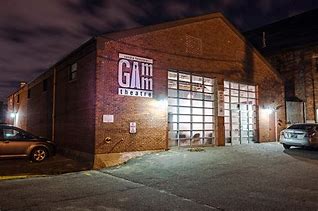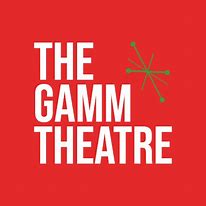To our community,

George Floyd’s brutal murder by Minneapolis police officers on the heels of the killings of Breonna Taylor and Ahmaud Arbery, more recently Rayshard Brooks, and so many other Black victims of police brutality and racial violence, has caused outrage and despair around the world – including among our own Rhode Island arts community.
We at The Gamm stand in solidarity with the hundreds of thousands of people who demand justice for Black lives. We also acknowledge that racism continues to shape the unequal power structures and deep social and economic inequities of today’s world; and that the American theater – our theater – is far from immune to pernicious, systemic racism. The Black Lives Matter movement has brought new urgency to those demanding a fuller, more honest confrontation with our duties, as artists, to combat racial exclusion and bias.
Understandably, many are calling for a swift and decisive plan. At the same time, we are aware that it would be a disservice to this moment and the Black Lives Matter movement to say that we can effectively address the enormity of these challenges in a few staff meetings. It would degrade the victims and their families who have suffered at the hands of brutal racial violence to suggest that posts on social media alone reflect real progress. The artists and audiences who feel alienated from our stages deserve far better. We need to continue asking ourselves: What can we do, as an important voice in the Rhode Island arts community, to answer the call to be a more just, equitable, and inclusive organization?
We can be honest. Internally, we are undergoing a frank, unvarnished look at where we are right now. We are reckoning with the urgent global call for racial justice, and envisioning a future in the near and long term where The Gamm boldly meets that demand.
We can listen. Privilege requires that we listen to the BIPOC voices in our community. Rather than contribute to reactive discourse, The Gamm can listen deeply to those in our midst who deserve better representation on our stages, among our staff, on our board, and in our audiences.
We can ask for help. Our board and staff have been engaged in a year-long internal strategic planning process that prioritizes Equity, Diversity, and Inclusion. We have also engaged a consultant with 30 years’ experience to work closely with us to develop an actionable plan for concrete, lasting change. We are continuing to educate ourselves, and we are working with BIPOC members of our community who have generously offered to assist us in disrupting the systems that permit bias and exclusion within our organization, on our stage, and in our relationships with community partners.
We can open our spaces. We will continue to look for ways to use our physical spaces for inclusive discussions, artistic performances, forums, and more that will amplify BIPOC voices.
We do not have all the answers today, but we are committed to continuing the work. Since its founding as Alias Stage in 1984, The Gamm has consistently examined how our society divides and marginalizes humanity, returning again and again to stories that give dimension and depth to economic and social injustice – including new works such as The Bride of Olneyville Square (1988) and Good People (2014) , and classics such as Awake and Sing! (2008) . Recent productions have dealt squarely with racism, including The Rant (2015) , A Human Being Died That Night (2017) , and Admissions (2019). We look forward to deepening that commitment in our upcoming season with Branden Jacobs-Jenkins’ An Octoroon. Off our stage, we have also confronted the profound impact of systemic injustice and inequality, most notably through our long-standing education programs in under-served public schools throughout our state.
But the present moment demands much more than a list of plays and community programs about which we are proud. The Black Lives Matter movement demands that we confront injustice not merely with the work we put on our stage, but in the structures and systems upon which our organization is built. The present moment demands that we all – Gamm leadership, staff, our audiences, and community of stakeholders – take responsibility for serving justice in our hiring practices, in our artistic programming, and in the ways we connect with our community. In other words, it demands we act.
We make art. We embrace and promote our values through the stories we tell on our stage. We, the leadership, staff, and board of The Gamm Theatre pledge to recommit ourselves to those values by ensuring that the artists we engage and the audiences we welcome boldly embody them.
We sincerely hope that this letter serves as an invitation to join us in an ongoing conversation about how The Gamm can do its part in meeting the urgent demand for racial and economic justice. And we look forward to sharing in this engagement with you – our audience members, artists, donors, neighbors, friends .
Respectfully,

Tony Estrella, Artistic Director
Amy Gravell, Managing Director
